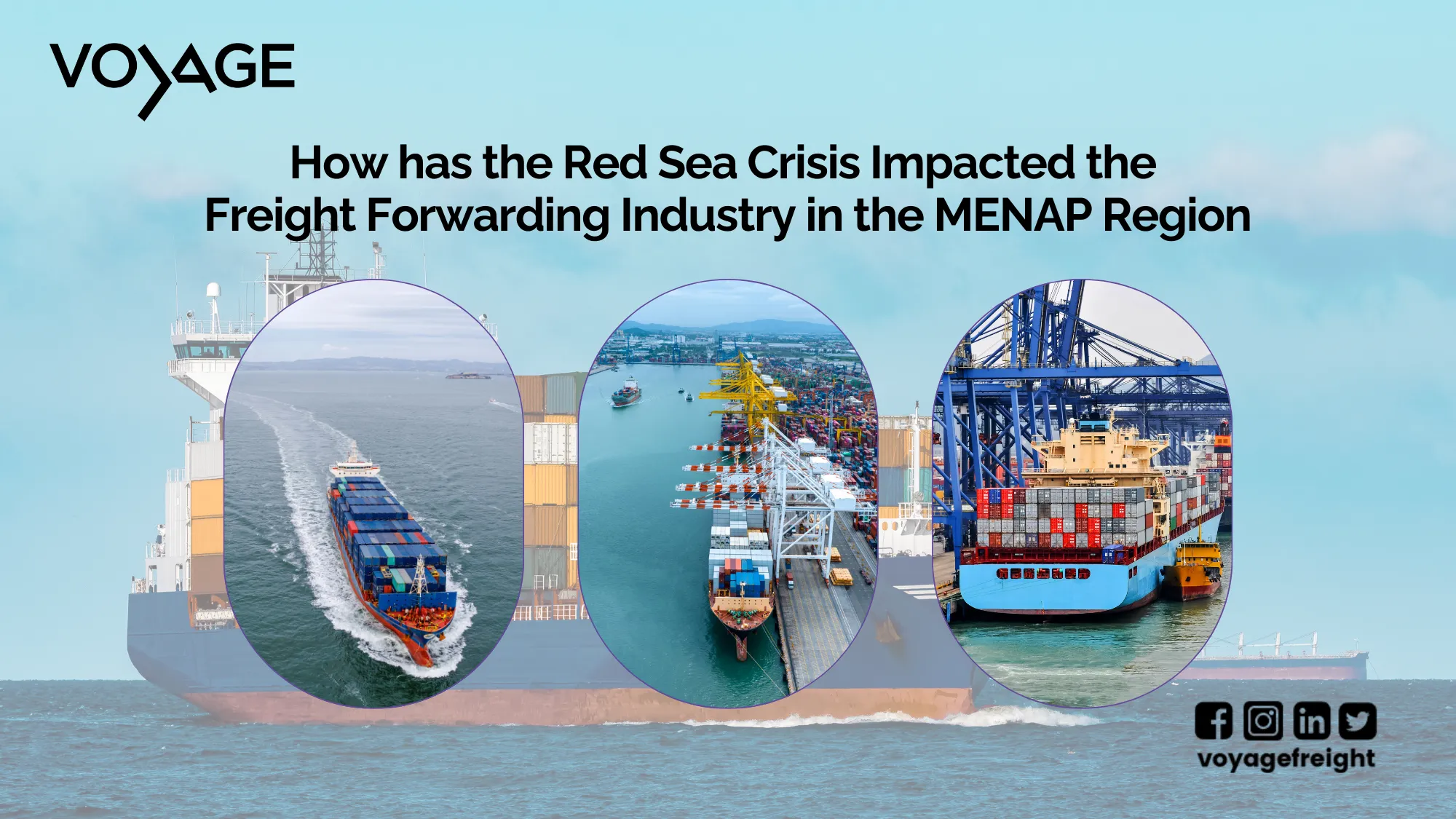
How has the Red Sea Crisis Impacted the Freight Forwarding Industry in the MENAP Region
In recent times, the Red Sea crisis has emerged as a significant challenge for the freight forwarding industry, particularly in the Middle East, North Africa, and the Persian Gulf (MENAP) region. As international trade routes face disruptions, the role of freight forwarders, including those in the UAE, becomes pivotal in mitigating the impact on supply chains. In this blog, we will delve into the Red Sea crisis and explore its far-reaching implications on the freight forwarding industry, emphasizing the role of international freight forwarders, the UAE’s digital freight marketplace, and the broader landscape of logistics and supply chain management.
The Red Sea Crisis Unveiled
The Red Sea crisis revolves around geopolitical tensions, regional conflicts, and maritime security concerns that have plagued the vital waterway. The strategic sea route is connecting the Mediterranean Sea to the Indian Ocean, facilitating the transportation of goods between Europe, Asia, and Africa. The crisis has led to increased threats to vessels, disruptions to shipping lanes, and elevated risks for cargo in transit.
International Sea Freight Services in Turmoil
For international freight forwarders, specializing in sea freight services, the Red Sea crisis presents a myriad of challenges. Vessels face delays, increased insurance costs, and the need for enhanced security measures. Freight forwarders must navigate through the complexities of ensuring the safe and timely delivery of goods, all while adapting to the dynamic geopolitical landscape.

Freight Forwarders in UAE: A Crucial Hub
The UAE, with its strategic location and world-class infrastructure, has long been a key player in the global logistics landscape. As the crisis unfolds, freight forwarders in the UAE find themselves at the forefront of managing the repercussions. The effectiveness of freight forwarding in UAE is integral to maintaining smooth supply chain operations as UAE serves as a crucial hub for international trade.
Best Freight Forwarder Network and Supply Chain Management
In response to the Red Sea crisis, freight forwarders are increasingly relying on robust networks and efficient supply chain management strategies. The best freight forwarder network is one that can adapt to changing circumstances, utilizing technology and collaboration to ensure the seamless movement of goods. This crisis underscores the importance of a well-established network that can provide alternative routes, real-time updates, and risk mitigation solutions.
UAE’s Digital Freight Marketplace: A Beacon of Innovation
In the face of disruptions caused by the Red Sea crisis, the UAE’s digital freight marketplace emerges as a beacon of innovation. The digitalization of freight services enables faster communication, real-time tracking, and enhanced visibility into the supply chain. Freight forwarders in the UAE can leverage these technological advancements to streamline operations, optimize routes, and respond swiftly to evolving challenges.
Land Transportation: A Viable Alternative
As maritime routes face heightened risks, land transportation becomes an increasingly viable alternative for freight forwarders. The crisis prompts a re-evaluation of transportation modes, with a potential shift towards more extensive use of road and rail networks. Freight forwarders must assess the feasibility of land transportation routes, considering factors such as cost, time efficiency, and security.

Conclusion:
The Red Sea crisis casts a shadow over the MENAP region, impacting the freight forwarding industry and its pivotal role in global supply chains. International freight forwarders, particularly those in the UAE, face the challenge of adapting to the evolving geopolitical landscape, ensuring the uninterrupted flow of goods, and embracing technological innovations. The resilience of the industry hinges on collaborative efforts, innovative solutions, and the ability to navigate through troubled waters. As the Red Sea crisis unfolds, the freight forwarding sector stands at the forefront of transforming challenges into opportunities for growth and adaptability.

